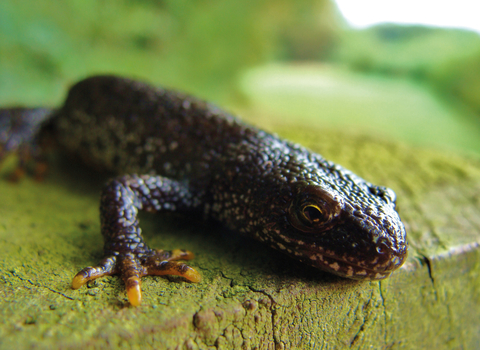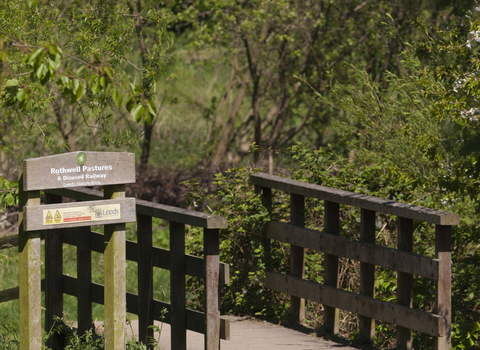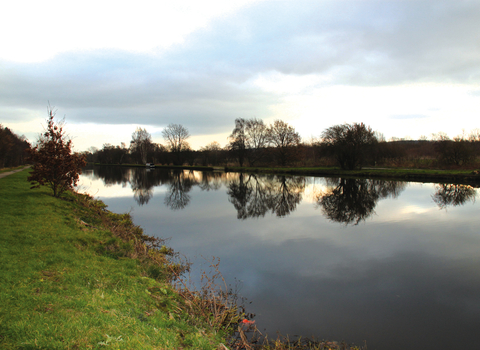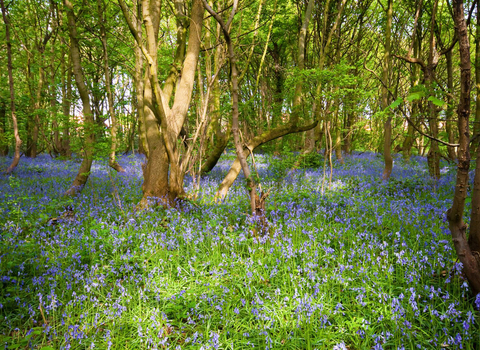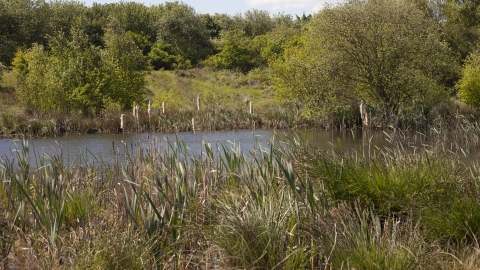
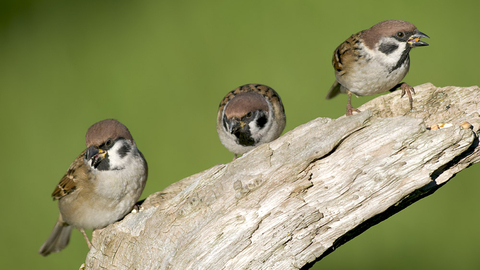
Tree sparrows
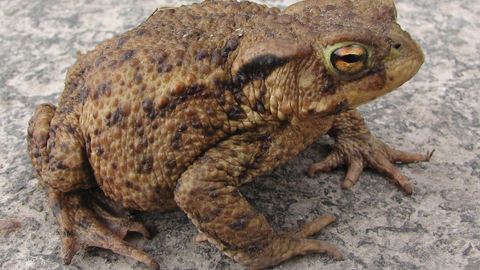
Common toad © Martin Batt
male Reed Bunting © Richard Scott 2021
Rothwell Country Park
Location
Know before you go
Dogs
Please respect the resident wildlife and keep dogs on a short lead.
When to visit
Opening times
Open at all times. We recommend a half day trip for this reserve, or extend with a 40-minute walk to Rothwell Pastures, via Springhead Park and lunch at The Pavilion.Best time to visit
March to NovemberAbout the reserve
Rothwell Country Park is an ideal spot for a peaceful weekend walk close to urban West Yorkshire, and for families to discover a variety of wildlife. It’s part of a corridor of green spaces in the Lower Aire Valley – a very different picture to its medieval days as a royal hunting ground and later as a busy colliery, which closed in 1983. It lay derelict until it was brought back to life in the mid-1990s by a partnership between local people, Leeds City Council and Groundwork Leeds, opening in 2000. The park is managed by the Friends of Rothwell Country Park and Yorkshire Wildlife Trust.
There’s an extensive network of paths including a sculpture trail and pond trail. Come along to one of our pond-dipping events to discover creatures including common frogs and toads, smooth newts, and lots of dragonfly nymphs. The sculpture trail features a special work called ‘Breaking the Mould’ by Andrew McKeown - giant seed emerging from an industrial mould - installed to celebrate the changing places programme, which transformed post-industrial land into parks and open spaces. Walk to the summit of the old spoil heap for one of the best views in Leeds!
You’ll be surprised at how much wildlife you can find here. In the wildflower meadows, ox-eye daisy, bird’s-foot trefoil, common spotted orchid and bee orchid attract butterflies including tortoiseshell, skippers and peacock. The woodlands are home to hedgehogs, rabbits, bats and roe deer. Look for the classic ‘fairy toadstool’, fly agaric, amongst the variety of fungi in autumn. Many birds have been recorded, including tree sparrow, skylark, linnet, cuckoo, yellowhammer, reed bunting and willow tit.
Species
Contact us
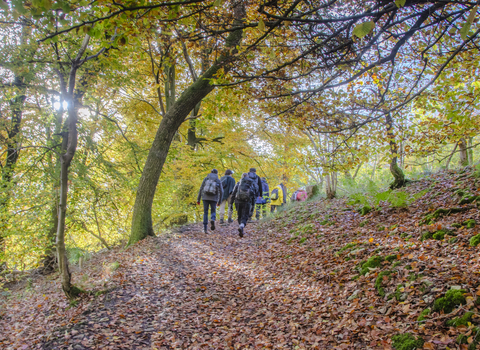
The group headed further into the wood and enjoyed the glorious autumn colours
Photo Credit - Telling our Story Volunteer, Sara
Get involved!
We love to see new faces! If you’d like to volunteer to help manage the site, please contact us at volunteering@ywt.org.uk.
Did you know?
Rothwell Colliery produced coal from 1867 until it's closure in 1983 and was known as ‘Fanny Pit’ by the miners and local people. It’s thought to have been named after one of the owner’s daughters.
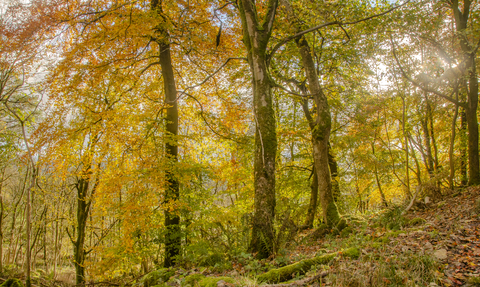
The autumn colours were even more beautiful when the sun came out
Photo Credit - Telling our Story Volunteer, Sara

